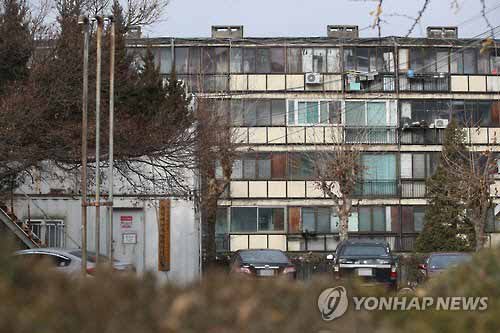Now Gwacheon and Busan following 4th district of Gangnam… Lawsuit on violation of the constitution to be expanded due to reconstruction excessive profit redemption
Park Sang Gil | sweatsk@ | 2018-04-02 10:49:31

By Yonhab News
According to the construction industry on April 1, there are lawsuits filed nationwide by the Gangnam Rebuilding Union in Seoul to dismiss excess profits reconstructed. The excess return system was introduced in 2006 as a system to pay up to 50% of the surplus amount when an average profit of more than 30 million won per person was obtained during the reconstruction process, then resumed in January after being suspended from the end of 2012.
Eunma apartment, Jamsil Jugong 5, and Chunho 3 houses participated in the Gangnam area of Seoul, the Daecheon Ssangyong 2. In the non-Gangnam area, the Geumcheon Rainbow Apartment, Gangseo Shinan Villa, Gyeonggi New Anyang Mansion Samho, Gwacheon Jugong 4 Complex, . In addition, it is reported that it is considering participating in unconstitutional lawsuits among the promotion complexes that have applied for administrative disposition but have not yet been approved.
The lawsuits filed by these jurisdictions are laws and constitutional lawsuits filed for laws that infringe fundamental rights in the Constitution without the act of dismissing concrete reconstruction fees. The reconstruction contribution levied on the gains through reconstruction agrees with the double taxation because it has the same purpose as the transfer income tax. Another problem is the lack of proper measures when housing prices decline.
This is not the first time a lawsuit has been filed for excess profits. Earlier, the Constitutional Court ruled in favor of the Constitutional Court`s request for the first time in relation to the 2008 reconstruction superannuation allowance law. The Constitutional Court ruled that the Constitutional Court was not the object of the constitutional amendment because there was no case of imposition of the reconstruction contribution fee, not the constitutionality of the system itself.
Meanwhile, the judgment of the Constitutional Court is expected to be how well the proportional principle between the public interest and the private purpose of the excess return system has been maintained.
The real estate industry expects speculative breezes to flood Seoul when the excess return system is ruled unconstitutional.
A construction industry expert said, "It is expected that interest in reconstruction will increase considerably after the unconstitutional ruling," he said. "Even though the Constitutional Court will judge it and it is likely that the National Assembly will adopt a plan to amend the relevant laws and regulations on excess profits.”
Meanwhile, one family member of one of the reconstruction promotion complexes should pay the rebuilding allowance from the minimum of tens of thousands of won to the maximum of several hundreds of millions of won if the judgment is legal.
Most of them are in a situation where they have to borrow money.
An expert in the real estate industry pointed out, "The excess profits are the taxes that the government calculates for the revenues that will be incurred by the reconstruction project, which infringes on the private property rights."
By Park Sang Gil sweatsk@
